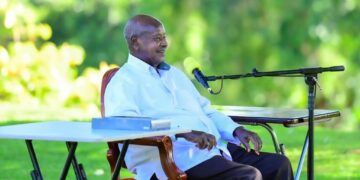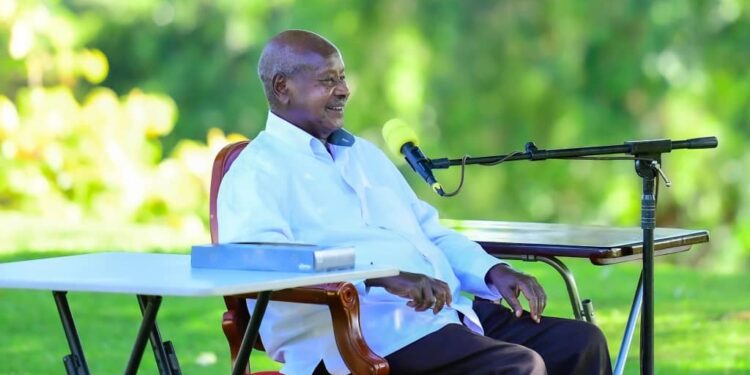Kampala – President Yoweri Kaguta Museveni has dismissed reports that Ugandan troops have been deployed in the Eastern Democratic Republic of Congo to fight the M23 rebels.
In a statement released on Friday, Museveni clarified that the Uganda Peoples’ Defence Forces (UPDF) remain in the Democratic Republic of the Congo (DRC) for specific missions unrelated to the M23 conflict.
“I need to clarify one misinformation I saw on Al-Jazeera TV, the other night. There was an item that said that Uganda had deployed troops in Eastern Congo to help the Congo government fight the M-23 rebels. This is not true,” President Museveni stated, responding to a recent report aired on Al Jazeera TV.
Museveni explained that President Félix Tshisekedi authorised Uganda’s military presence in DRC nearly four years ago to combat the Allied Democratic Forces (ADF), a terrorist group responsible for attacks on both Congolese and Ugandan civilians.
“We were very happy for H.E. Tshisekedi to do this, and it has helped the Congolese citizens in the area. They have gone back to their villages, and the Ugandans are no longer being killed,” he emphasised.
He referenced past atrocities linked to ADF militants, including the killings of seven Ugandan sheikhs, the assassination of Gen. Katumba Wamala’s daughter, and the murder of former senior prosecutor Joan Kagezi.
“You remember the 7 sheikhs killed, Gen. Katumba’s daughter, Joan Kagezi, etc.? That was the main mission our troops went to Congo for.”
According to Museveni, the UPDF was assigned two additional tasks during its operations in DRC: protecting the jointly funded Kasindi-Beni-Butembo Road construction and participating in the East African Force, which was mandated to maintain neutrality in the M-23 conflict.
“Along the way, two new tasks were added: protecting the jointly funded Kasindi- Beni-Butembo Road and being part of the East African Force that had successfully separated the M-23 fighters that were East of the Bunagana-Goma Road and the Congo government troops that were, mainly, West of that road in some sections.”
However, he noted that the Congolese government expelled the East African Force after Kinshasa accused it of not helping to fight the M-23 rebels.
“The East African Force was neutral in that matter of the fighting between the Congo Army and the M-23. With the mandate of the East African Force cancelled, the UPDF remained with two tasks: to fight the ADF alongside the Congo Army and to protect the construction of the Kasindi-Beni-Butembo Road,” Museveni said.
He further disclosed that due to the worsening security situation in Eastern Congo, Uganda secured permission to extend its deployment to Lubero, near Butembo and Bunia, in the northern operational area.
“Our presence in Congo, therefore, has nothing to do with fighting the M-23 rebels,” the president reiterated. He urged parties involved in the M-23 conflict to pursue diplomatic solutions rather than military confrontation.
“Right from the beginning, our advice to the involved parties in the Congo government-M-23 conflict was negotiations. The history of that conflict is well known, and the solutions are there. The regional conferences of EAC and SADC have guided on this.”
Earlier, Lt Gen Kayanja Muhanga, Uganda’s Commander of Land Forces, reaffirmed that their deployment in the area is based on a bilateral agreement between Uganda and the DR Congo.
He distanced the UPDF from misleading partisan claims peddled on social media.
“This deployment in Ituri is part of Operation Shujaa, our joint FARDC – UPDF operation against the militia, including the ADF and CODECO,” said DRC military authorities in Ituri, upon arrival of the Ugandan troops in Rwampara near Bunia.
The statement comes at a time of heightened tension in Eastern Congo, with various armed groups engaged in conflict, leading to displacement and humanitarian crises.









